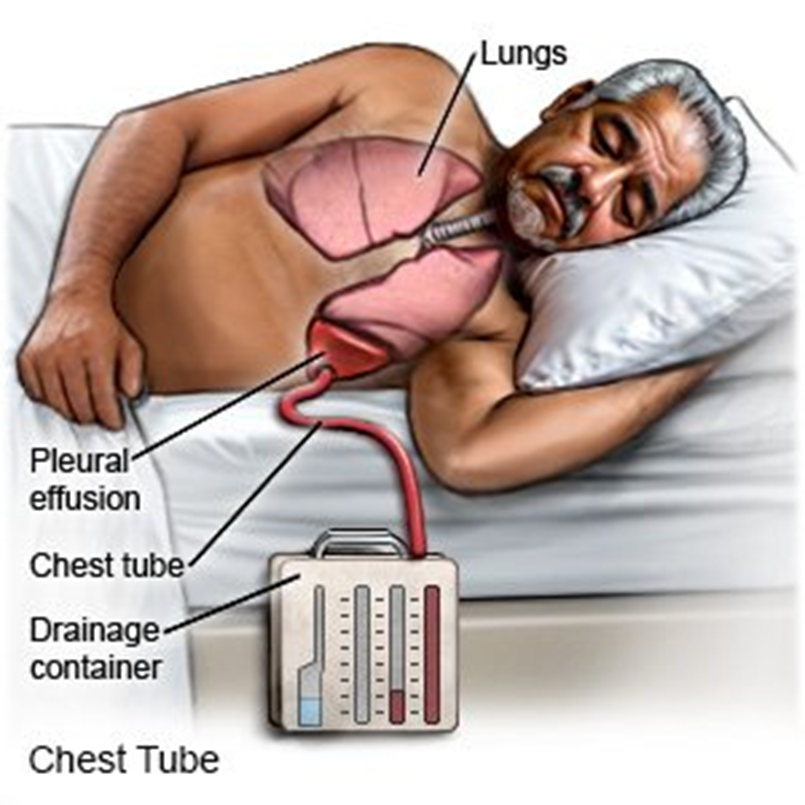A client is on a ventilator. Alarms are sounding, indicating an increase in peak airway pressure. The nurse assesses first for what?
Malfunction of the alarm button.
A cut or slice in the tubing from the ventilator.
Higher than normal endotracheal cuff pressure.
A kink in the ventilator tubing.
The Correct Answer is D
Choice A Reason:
Malfunction of the alarm button is unlikely to be the cause of increased peak airway pressure. The alarm is designed to alert the nurse to a problem with the ventilator or the patient’s airway, not to malfunction itself. Therefore, this is not the first thing the nurse should assess.
Choice B Reason:
A cut or slice in the tubing from the ventilator could cause a loss of pressure or air leak, but it would not typically result in increased peak airway pressure. Instead, it would likely cause a decrease in pressure and potentially trigger a different alarm.
Choice C Reason:
Higher than normal endotracheal cuff pressure can contribute to increased peak airway pressure. However, it is not the most immediate concern compared to a kink in the tubing, which can completely obstruct airflow and rapidly compromise the patient’s ventilation.
Choice D Reason:
A kink in the ventilator tubing is a common and immediate cause of increased peak airway pressure. It obstructs the flow of air, leading to a buildup of pressure in the system. This is the first thing the nurse should assess and correct to ensure the patient is receiving adequate ventilation.

Nursing Test Bank
Naxlex Comprehensive Predictor Exams
Related Questions
Correct Answer is ["A","B","D","E"]
Explanation
Choice A Reason:
Aspirating the stomach contents is essential to ensure the nasogastric tube is correctly positioned in the stomach. This step helps verify that the tube has not migrated and is safe for medication administration. If the aspirate is not obtained, further steps should be taken to confirm the tube’s placement.
Choice B Reason:
Checking the residual volume is important to assess the stomach’s contents and ensure that the patient is tolerating the feedings or medications. High residual volumes may indicate delayed gastric emptying or other gastrointestinal issues. This information helps guide the timing and amount of medication administration.
Choice C Reason:
Removing the tube and placing it in the other nostril is not a standard practice before administering medication. This action is unnecessary and could cause discomfort or complications for the patient. The focus should be on verifying the tube’s placement and ensuring it is functioning correctly.
Choice D Reason:
Testing the stomach contents for a pH indicating acidity is a reliable method to confirm the nasogastric tube’s placement. Gastric contents typically have a pH of 1 to 5, indicating the tube is in the stomach. This step helps ensure the safe administration of medications.
Choice E Reason:
Turning off the suction to the nasogastric tube is necessary before administering medications. Suction can interfere with the absorption of the medication and may cause the medication to be removed from the stomach before it has a chance to take effect. Therefore, it is important to turn off the suction temporarily during medication administration.
Correct Answer is ["B","C","D"]
Explanation
Choice A Reason:
Administering 0.45% NS (normal saline) at 50 mL/h is not appropriate for a client with SIADH (Syndrome of Inappropriate Antidiuretic Hormone Secretion). This solution is hypotonic and can exacerbate the condition by increasing water retention and worsening hyponatremia. Therefore, this choice is not included in the plan of care.
Choice B Reason:
Obtaining daily weight is crucial for monitoring fluid balance in clients with SIADH. Daily weights help detect fluid retention or loss, which is essential for managing the condition. Accurate weight measurements can indicate changes in fluid status and guide adjustments in treatment.
Choice C Reason:
Maintaining seizure precautions is vital for clients with SIADH because severe hyponatremia can lead to neurological symptoms, including seizures. Implementing seizure precautions helps ensure the client’s safety and allows for prompt intervention if seizures occur.
Choice D Reason:
Administering 3% saline as ordered is appropriate for treating severe hyponatremia in clients with SIADH. Hypertonic saline helps increase serum sodium levels, which is critical for correcting the electrolyte imbalance. This intervention should be closely monitored to avoid rapid changes in sodium levels.
Choice E Reason:
Encouraging fluid intake is not appropriate for clients with SIADH. The condition is characterized by excessive water retention, and increasing fluid intake can worsen hyponatremia. Instead, fluid restriction is typically recommended to manage the condition effectively.
Whether you are a student looking to ace your exams or a practicing nurse seeking to enhance your expertise , our nursing education contents will empower you with the confidence and competence to make a difference in the lives of patients and become a respected leader in the healthcare field.
Visit Naxlex, invest in your future and unlock endless possibilities with our unparalleled nursing education contents today
Report Wrong Answer on the Current Question
Do you disagree with the answer? If yes, what is your expected answer? Explain.
Kindly be descriptive with the issue you are facing.
